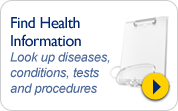Find It Fast
- About Johns Hopkins Medicine
- Diversity and Inclusion
- Emergency
- Employee Engagement
- Epic
- HIPAA
- HopkinsMedicine.org
- Hopkins Medicine Today
- Hopkins Medicine YouTube Channel
- Hopkins Policy & Document Library (HPO)
- Johns Hopkins University Policy & Document Library
- Leadership Updates and Managers' Resources
- myManager Portal
(Manager Access Only) - Patient Rights and Responsibilities
- Patient Safety
- Strategic Plan
| Title | Enzyme Revealed as Promising Target to Treat Asthma and Cancer |
| Sponsor | JHM Marketing & Communications |
| URL | http://www.hopkinsmedicine.org/news/media/releases/enzy... |
| Details | In experiments with mice, Johns Hopkins Kimmel Cancer Center scientists have identified an enzyme involved in the regulation of immune system T cells that could be a useful target in treating asthma and boosting the effects of certain cancer therapies. In research described online April 6 in Nature Immunology, the investigators show that mice without the enzyme SKG1 were resistant to dust mite-induced asthma. And mice with melanoma and missing the enzyme, developed far fewer lung tumors—less than half as many—than mice with SKG1. “If we can develop a drug that blocks the enzyme in a way that mimics what happens when the enzyme is missing, we would not only have a treatment to inhibit asthma, but also a drug that could be used in conjunction with other experimental therapies aimed at helping the immune system fight cancer,” said Jonathan D. Powell, M.D., professor of oncology at the Johns Hopkins Kimmel Cancer Center. The unusual dual potential of an SKG1-blocking compound stems from the enzyme’s role in a key pathway linked to T cells, which act as either “generals” of the immune system by directing how the system works, or “soldiers” that seek and destroy foreign cells. Powell and his colleagues decided to look at SKG1 because it works along the same pathway of a protein called mTOR, a focus of their previous research. The mTOR pathway helps T cells decipher signals from their environment, and prompts the cells to transform into specific T cell types. As part of this pathway, SKG1 dials down production of a signaling protein called interferon-gamma. When SKG1 is inactive, T cells produce increased amounts of interferon-gamma that appear to be useful in fighting tumor cells. Powell said that a SKG1-blocking drug might be used in conjunction with other cancer immunotherapies as a sort of booster medication to enhance their effects. Experimental cancer immunotherapies, including vaccines and so-called checkpoint blockade inhibitors, are the focus of intense research within the past few years, he added. The researchers also discovered that SKG1 promotes the production of T helper 2 cells, which become overactive in asthma and other allergies in a sort of runaway case of inflammation. Finding a drug that could shut down SKG1 could help block the inflammation that causes asthma and other allergic reactions. By untangling the different effects of SKG1, Powell said, his team has advanced efforts to fine-tune immune responses in patients. “We’re not suppressing or exacerbating the immune system, we’re regulating it,” he noted. “We’re regulating it to do exactly what we want it to do.” Other scientists involved in the study were Emily Heikamp, Chirag H. Patel, Sam Collins, Adam Waickman, Min-Hee Oh, Im-Hong Sun, Peter Illei and Maureen R. Horton from Johns Hopkins; Archna Sharma and Jyoti Sen from the National Institutes of Health; and Aniko Naray-Fejes-Toth and Geza Fejes-Toth from Dartmouth Medical School. The work was supported by the National Institutes of Health (R01 AI77610, DK 41481, DK 58898); the American Asthma Foundation; the American Medical Association Seed Foundation Grant; and the Flight Attendant Medical Research Institute. |
Recent Headlines
Headlines published on February 29, 2024
-
Unreliable Mass Transit and American Public Health
Megan Latshaw, associate professor at the Johns Hopkins Bloomberg School of Public Health, discusses a new CDC report showing that 5.7% of American adults didn’t have access to reliable transportation in 2022. Read more in the Hub about the implications of public transportation availability on public health. Read more »
-
Vote Today — Help Determine Best Hospitals, Best Children’s Hospitals
Eligible physicians are encouraged to vote for our hospitals in the 2024–25 U.S. News & World Report Best Hospitals or Best Children’s Hospitals reputation surveys by March 27. Voting takes five minutes at Doximity.com or by using the Doximity app. Please note that these rankings are different from the U.S. News & World Report Best Medical Schools ranking, in which Johns Hopkins no longer participates. Read more »
-
35th Annual Mix 106.5 Radiothon to Benefit Children’s Center Kicks Off Today
Tune in today, Feb. 29, and Friday, March 1, for the 35th Annual Mix 106.5 Radiothon, the biggest fundraiser for Johns Hopkins Children’s Center. For ways to participate in the 35th Annual Radiothon, visit the event website. Read more »
-
Celebrating Leap Year
Feb. 29 only comes around every four years — how will you celebrate? Read more for ideas to celebrate this leap year! Read more »
-
News Clip of the Day
To TV or not to TV before bed? In an article on Yahoo Life, Molly Atwood, assistant professor of psychiatry and behavioral sciences at The Johns Hopkins University, provides insight on the answer. Read more »
Features

Helping Our Neighbors
The JHM United Way campaign runs Oct. 16-Dec. 23. Give to the organization of your choice.

Free Flu Shots
All JHM personnel are required to get a vaccination.

Clinical Awards
Nominate a physician or care team for clinical excellence.

JHM Link
Subscribe to get the latest news and information.




